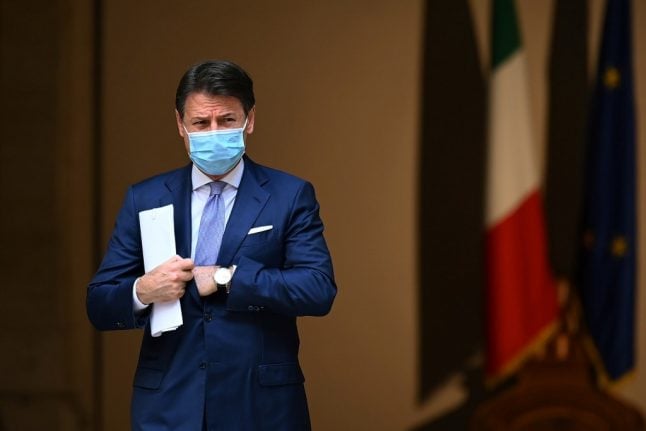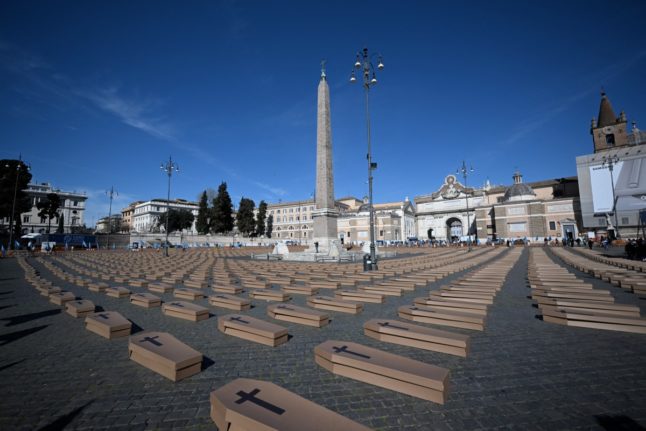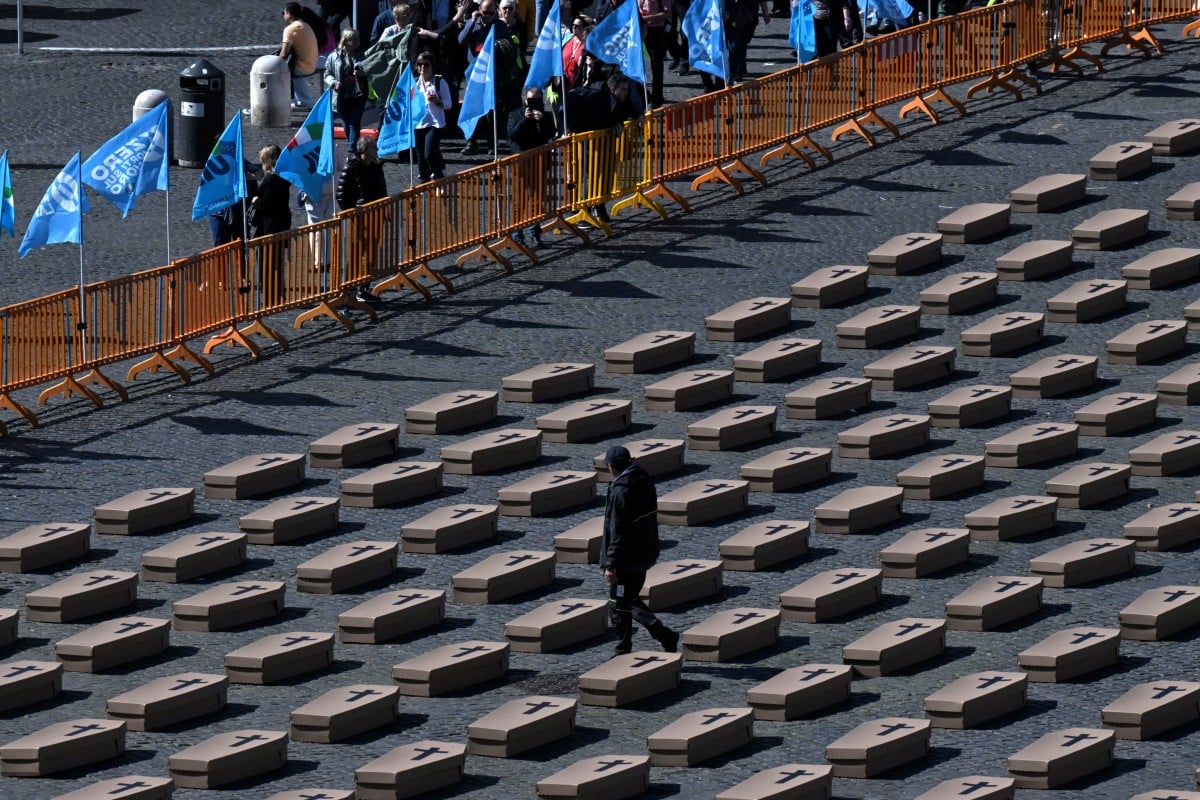Skirmishes between police and protestors in Florence and other Italian cities are due to “violent fringe elements” seeking to exploit the coronavirus emergency, the country's interior minister said on Saturday.
Protestors have taken to the streets in the past week in cities across Italy, including Rome, Naples and Turin, to criticise a new series of restrictions to stop an alarming rise in coronavirus cases, even as the government considers more stringent measures.
An unauthorised protest late Friday in the Renaissance city of Florence turned violent after police sought to prohibit about 200 people gathered in the city centre from entering the Piazza della Signoria, newspapers reported.
READ ALSO: What are the coronavirus rules in Italy right now?
Clashes broke out between police in riot gear and protesters, some of whom hurled Molotov cocktails, bottles and rocks, overturning trash bins and breaking security cameras.
“Unfortunately there are violent fringe elements trying to infiltrate the plazas in order to exploit the social and economic discomfort of this difficult moment,” Interior Minister Luciana Lamorgese told Il Foglio newspaper.
Lamorgese said the protestors included young people with criminal records, football hooligans and extreme-right activists who “find an opportunity to exploit legitimate demonstrations.”
Florence Mayor Dario Nardella wrote on Facebook the city had undergone a “surreal, terrible and painful night.”
“This is not how you protest your grievances, this is not how you voice your suffering,” Nardella wrote.
“Those who scar Florence must pay for what they have done.”
In Bologna some 80 kilometres (50 miles) away, a few hundred people also protested on Friday evening, most of them young men, including football hooligans and some giving the fascist salute, La Repubblica daily reported.
Second lockdown?
The protests come as Italy reported over 31,084 new cases of the virus on Friday, breaking a daily record.
Italy's government is eyeing a lockdown of the country's major cities, including Milan, Rome and Naples, to try to slow the alarming rise in infections, news media reported.
“We are meeting with experts and considering whether to intervene again,” Prime Minister Giuseppe Conte told Il Foglio.
The first European country to be hit hard by the pandemic in March, Italy underwent a more than two-month quarantine that devastated its already struggling economy.
READ ALSO: Can Italy really avoid a second lockdown?
On Sunday, Italy introduced new nationwide coronavirus restrictions, including the closure of all cinemas, theatres, gyms and swimming pools and the closing of restaurants and bars at 6:00 pm (1700 GMT).
Conte has said he wants to give the latest measures two weeks to take effect before deciding whether a fuller lockdown is needed, as has been ordered in neighbouring France, but the speed with which the virus is spreading may force his hand earlier.
The government has announced that five billion euros ($5.9 billion dollars) will be issued to the worst hit professions, including restaurants, taxi drivers and live entertainment venues.
The new restrictions spurred a wave of demonstrations in Rome, Milan, Naples and Turin on Monday and Tuesday, marked by violence and vandalism, with riot police firing teargas at groups of young people hurling bottles and rocks.
Earlier on Saturday, the president of the southern Campania region signed a new decree to suspend schools until November 14.




 Please whitelist us to continue reading.
Please whitelist us to continue reading.
Member comments